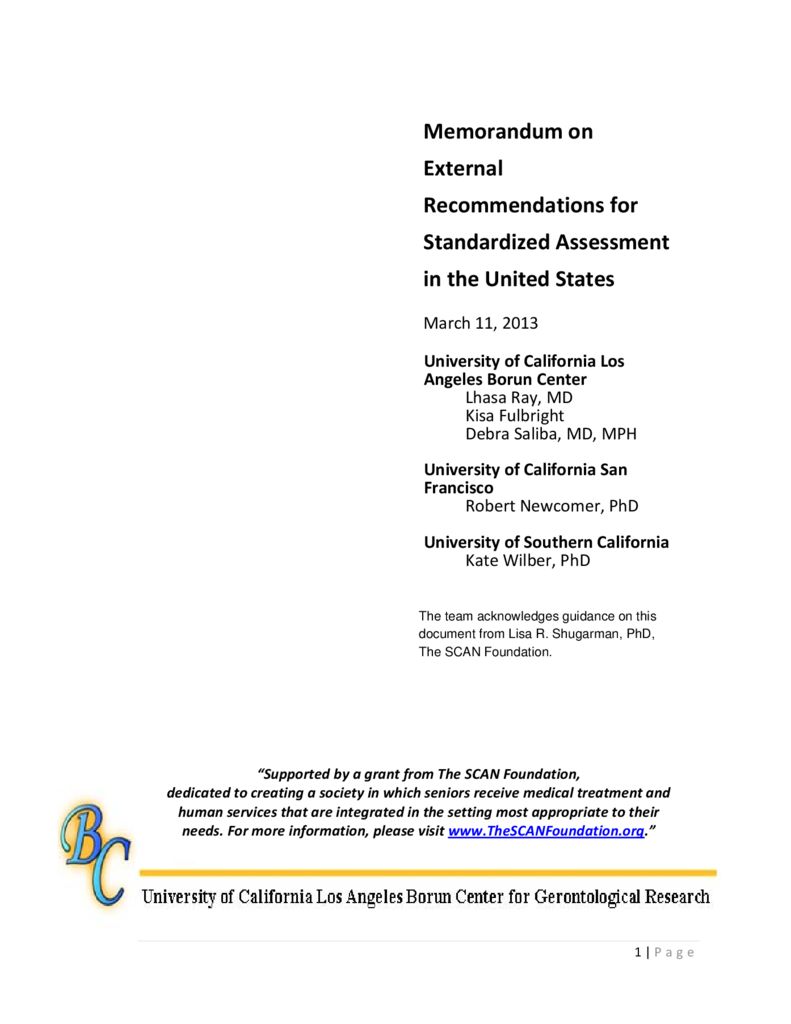Memorandum on External Recommendations for Standardized Assessment in the United States
summary
This paper was produced as part of California’s uniform assessment stakeholders work group by academic partners from the University of Southern California, University of California, Los Angeles, and the University of California, San Francisco. It identifies and compares existing gold-standard recommendations for standardized assessment throughout the U.S.
Date Updated: 10/30/2013Standardized assessment of each person’s need for services has been identified as a fundamental tool for bringing more coherence across a too often fragmented Long‐term Services and Supports (LTSS) system. Standardized assessment is compelling for several reasons. First and foremost standardized assessment can facilitate consistent and reliable identification of the individual’s met and unmet need for home‐ and community‐based services (HCBS). At the level of the individual, a standardized assessment will also simplify access to various programs and supports and has been identified as an important building block for decreasing fragmentation and improving services provided to those with long‐term care needs.
Continue Reading
This policy brief provides an introduction to The SCAN Foundation’s CLASS Technical Assistance Brief Series, which explores many of the critical issues to be considered for successfully implementing CLASS.
This policy brief describes the broad needs of individuals with disability and the wide range of supportive and environmental solutions that can allow for the most independent living possible. It suggests how findings on social and environmental supports for individuals with disability can inform implementation of CLASS.
This policy brief provides background on the historical development of benefit eligibility triggers in the private long-term care insurance market. Understanding how these triggers came into being can provide important information to those charged with implementing the CLASS Plan.


